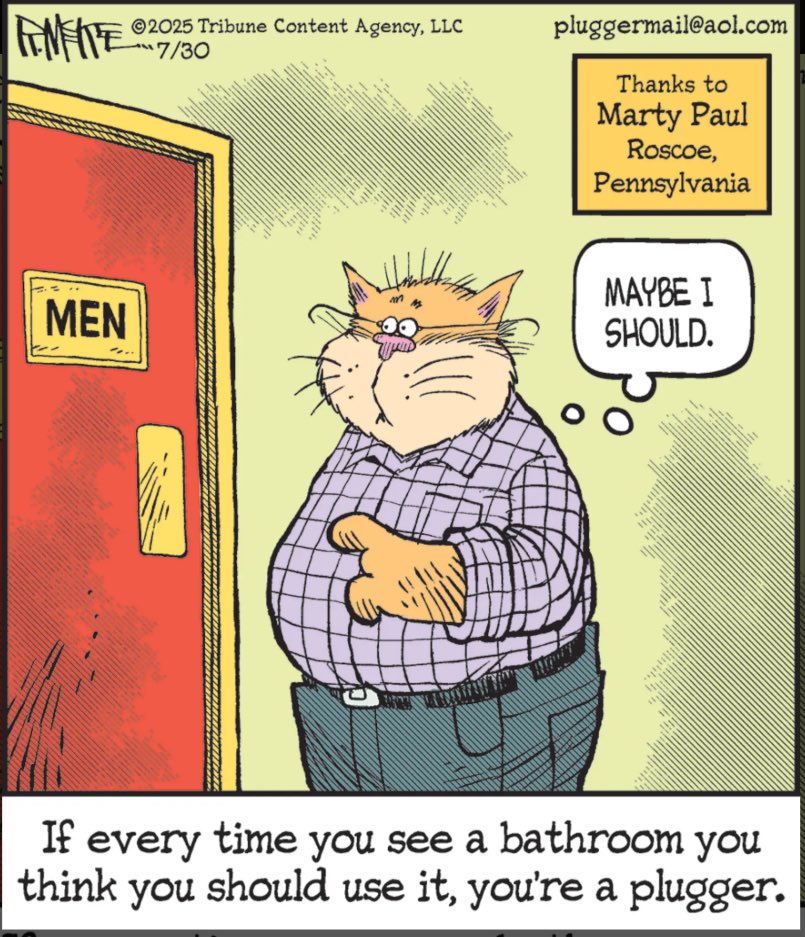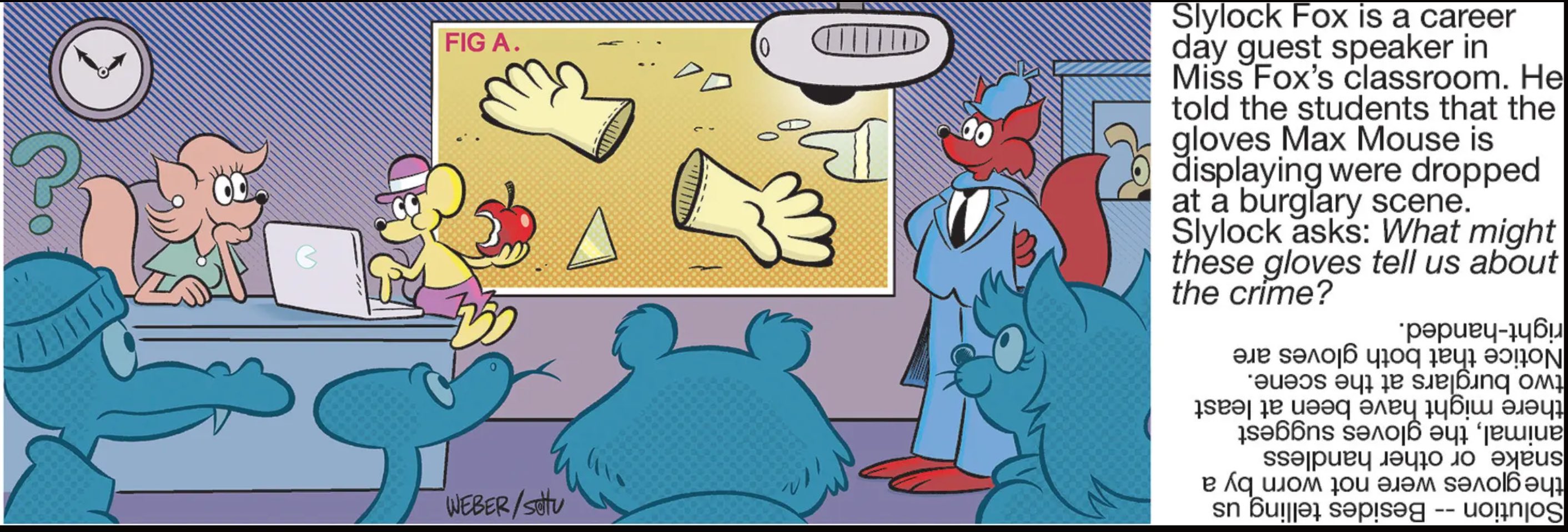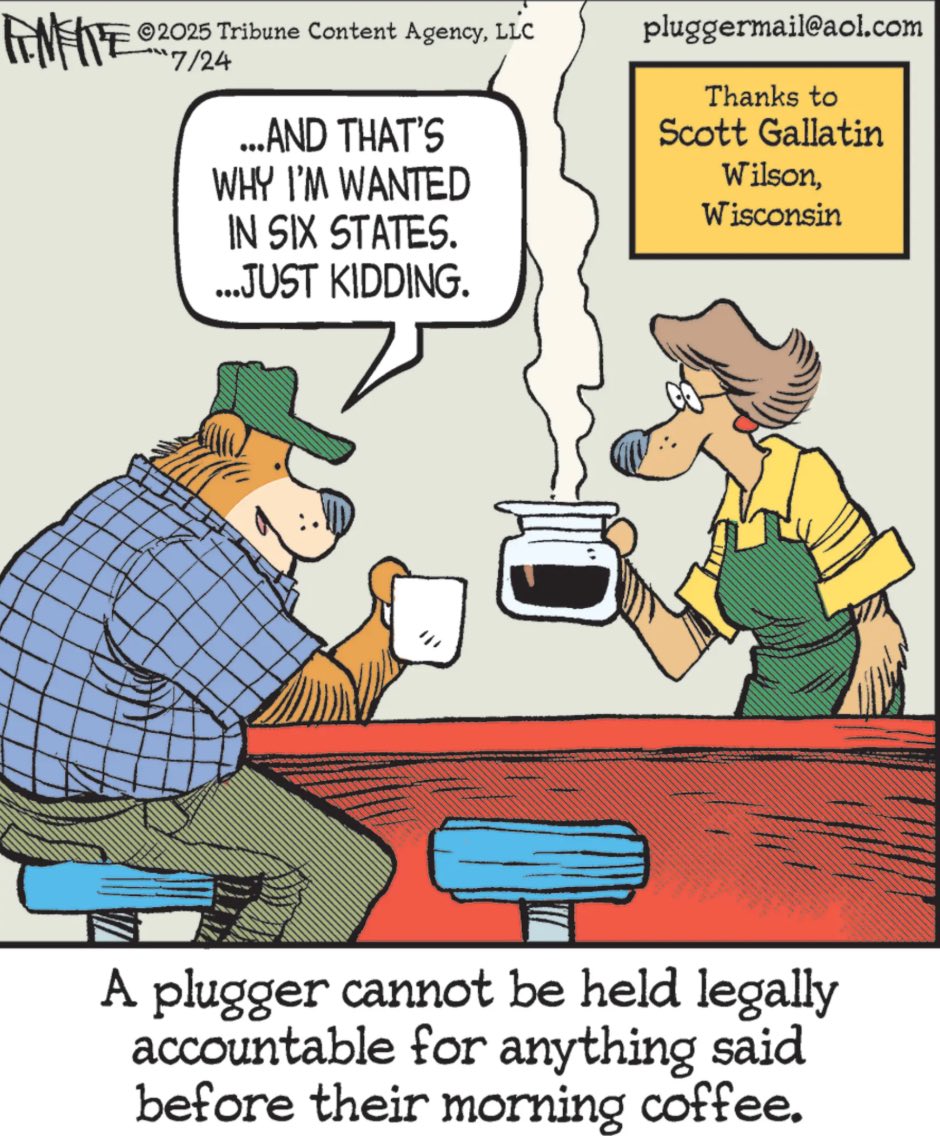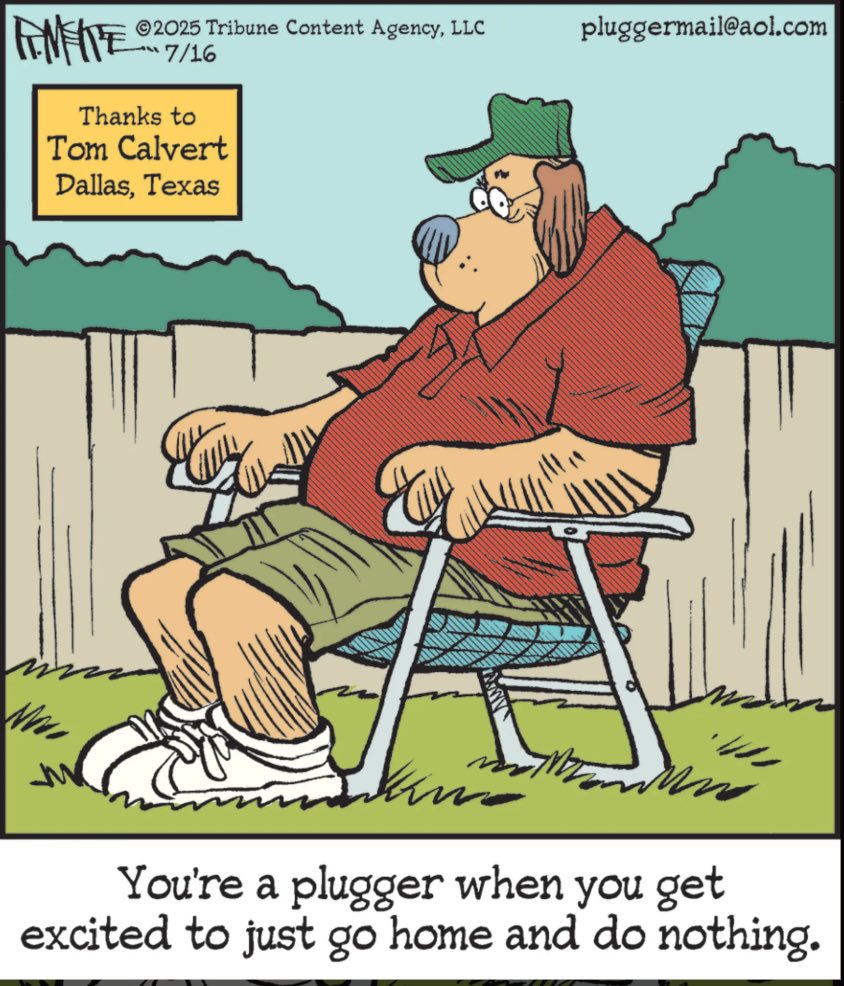It’s actually short for “Truckington”
Post Content
Herb and Jamaal, 7/30/25

It seems like just yesterday that Herb stormed into Rev. Croom’s office, declaring that he was ambivalent about believing in a creator God whom he couldn’t perceive with his senses. In fact, it was 11 years ago, but I guess that’s practically yesterday in newspaper comics terms, ha ha! Anyway, in the subsequent decade, it seems Herb has resolved his doubts by means of Pascal’s wager, though I have to say that “liv[ing] in the netherworld” is a pretty tame euphemism for “experiencing eternal physical torment as a damned soul in hell,” and maybe not really as motivating as he thinks.
Rex Morgan, M.D., 7/30/25

“Speaking of which, uh, that’s not your legal name, right? Like, I figure at some point before we get married I’m going to finally get to see some ID, and I’ve really had my fingers crossed that we’ve been working with a Mud Mountain/Fergus situation here.”
Intelligent Life, 7/30/25

Actually, fellas, most of the shareholders of Warner Bros. Discovery and the Walt Disney Company are institutional investors like pension and mutual funds, along with individual retail investors who are making decisions based on the companies’ financial positions rather than fandom affinity, so I’m not sure “the geek community” is the right word choice in this situation!
Pluggers, 7/30/25

Hey, buddy. You think a lot about peeing? Or pooping? When you look at a bathroom, do you think to yourself, “Do I have to pee or poop right now? Might as well give it a shot. Better safe than sorry!” Well, I’m sorry to inform you that you are, canonically, a plugger.







